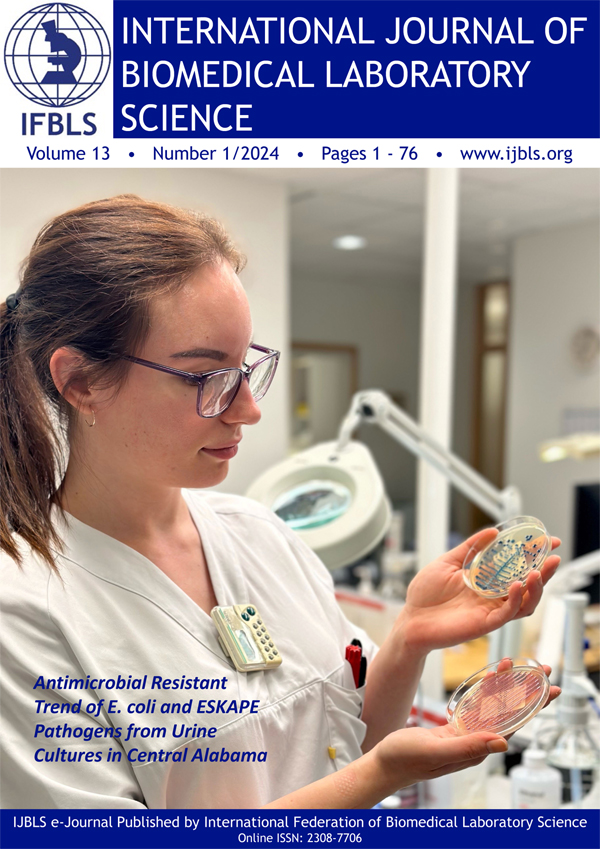Int. J. Bio. Lab. Sci 2013 2:1-6 【Abstract】 【PDF】
Abstract
Obesity is a key risk factor leading to several diseases, such as type 2 diabetes mellitus (T2DM), and has become a pan-endemic health problem with rapid-growing global incidence. T2DM is usually caused by insulin resistance. and often combined with progressive defect in insulin secretion and multiple metabolic complications in patients with long disease duration. Host genetics and environmental factors are the focus of discussion among obesity- and T2DM- causing factors. Identification and characterization of candidate genes and mechanisms that lead to metabolic abnormalities are helpful for the development of preventive and therapeutic strategies. Abundant evidences indicate that both obesity and T2DM are closely correlated with chronic inflammation, with increased levels of circulatory acute response proteins and cytokines in affected subjects. This article provides a general overview on the epidemiology, classification, and roles of cytokines in metabolism and T2DM. In addition, a summary of our study results concerning the investigation of cytokine genes among diabetic patients and the regulatory mechanism of interleuin-4 to metabolism is also included. Accomplishments of the immune-related genetic studies in a particular ethnic population and the underlying regulatory mechanism of cytokines to metabolism can lead not only to the understanding of the interactions between immune responses and metabolism, but also potential clues for the designing of treatment and prevention strategies of metabolic abnormalities.
Key words: cytokines, obesity, metabolism, interleukins, diabetes mellitus


